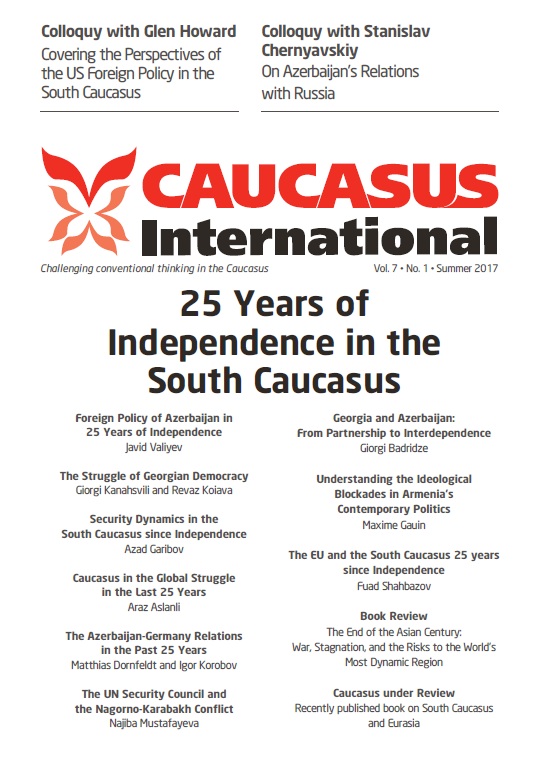The EU and the South Caucasus 25 years since Independence: Azerbaijan in the Geopolitical Strategy of the EU
The South Caucasus is an extraordinarily complex region in many senses. Having re-gained independence in 1991, the South Caucasus remains one of the world’s most security-challenged regions, facing a host of internal and external security threats. Despite its small size and relatively small population, the South Caucasus occupies an important place in international geopolitics. The collapse of the Soviet Union in 1991 brought new stakeholders to the region. The South Caucasus had the potential to become a prosperous region due to its natural resources and strategic location between Europe and Central Asia, but before that, the region sank into violence and years of political and economic turmoil. Ethnic and religious diversity, old territorial disputes and the rapid growth of the post-Soviet nationalism seriously impeded development. Longstanding claims by neighboring Armenia over the Nagorno-Karabakh region of Azerbaijan erupted into separatist ethnic violence by 1988, and a full-scale war with by 1991, with Armenians, backed by Russia. Despite the devastating impact of the wars in the South Caucasus in the beginning of 1990s, Azerbaijan became a point of interest for the international organizations, as well as major external powers, such as the United States and the European Union.
Latest news
- 03/17/2020 Call for Submission: “Non-Alignment Movement and Its Perspective in International Affairs”. Deadline: 1 July 2020 2626 views
Popular articles
- 02/24/2020 The Role of Irredentism in Russia’s Foreign Policy 2536 views
- 02/24/2020 Construction of sub-national identity vis-à-vis parent state: Gagauz case in Moldova 2218 views
- 02/24/2020 The Conflict in Ukraine - The Geopolitics of Separatism and Divergent Identities (Commentary) 2072 views
- 02/24/2020 The Role of the Soviet Past in Contemporary Georgia 2044 views





